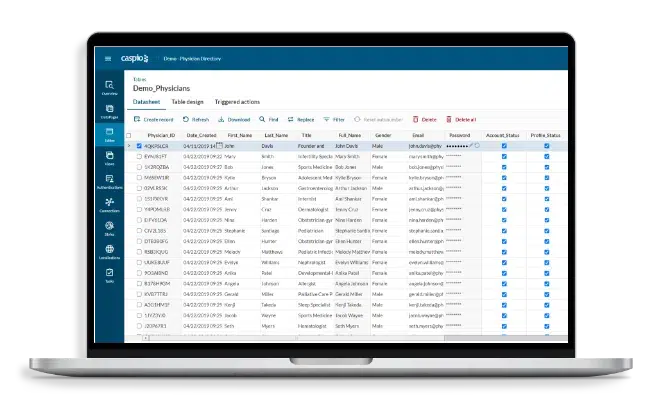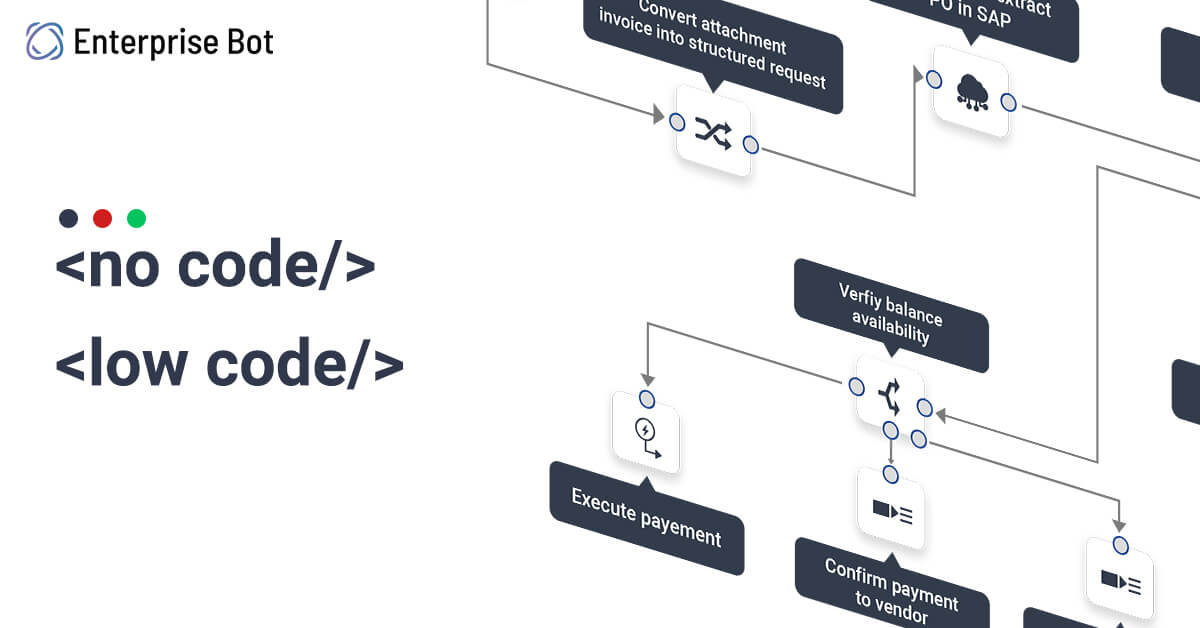No-Code Platforms for Open System Data Source Development: Conserve Time and Resources
No-Code Platforms for Open System Data Source Development: Conserve Time and Resources
Blog Article
Discovering the Benefits of Scalable Databases That Call For No Coding Skills for Efficient Information Management Solutions
The emergence of scalable data sources that get rid of the necessity for coding abilities presents a transformative possibility for companies seeking reliable data management remedies. By allowing non-technical users to harness the power of information through instinctive user interfaces, these systems enhance ease of access and foster collaboration throughout diverse groups. Their cost-effectiveness and adaptability to advancing company demands can considerably simplify operational procedures. As we think about the effects of such improvements, it becomes critical to take a look at how they can improve the landscape of data administration and drive sustainable growth in an affordable atmosphere.
Boosted Accessibility for Individuals
Boosted ease of access for customers is an essential aspect of scalable databases, guaranteeing that information management systems are user-friendly and instinctive. In an era where data-driven choices are extremely important, ease of access enables a wider variety of individuals, consisting of those without considerable technical competence, to involve with data source systems successfully. This democratization of information gain access to helps with improved collaboration throughout divisions, equipping employees to remove understandings and make educated decisions.
User-friendly user interfaces, such as visual information and drag-and-drop functions representation, simplify complicated data communications. These improvements decrease the learning contour connected with conventional database management, making it possible for individuals to concentrate on leveraging information instead of facing technical intricacies. Scalable data sources commonly incorporate real-time analytics and customizable dashboards, providing individuals with immediate understandings tailored to their certain needs.

Cost-Effectiveness and Source Financial Savings
Reliable information administration not only rests on accessibility yet additionally on cost-effectiveness and source financial savings. Scalable databases developed for customers without any coding abilities significantly lower economic worries typically connected with standard database monitoring systems. By getting rid of the requirement for specialized programming expertise, companies can allot their sources much more efficiently, focusing funds on core organization tasks as opposed to extensive training or working with competent personnel.
In addition, these databases often make use of cloud-based services, which further lower costs related to equipment and maintenance. Organizations can scale their data source services according to their demands, preventing the expenditures incurred from over-provisioning sources. This flexibility implies businesses can adapt to transforming demands without incurring unneeded costs, resulting in significant long-term cost savings.
Additionally, easy to use user interfaces simplify data entrance and monitoring processes, decreasing the time invested in management tasks. This effectiveness translates right into labor cost savings, enabling groups to concentrate on strategic initiatives rather than routine maintenance. In general, embracing scalable data sources that need no coding skills promotes a more economical approach to data administration, enabling organizations to optimize their resources while maintaining high levels of functional effectiveness.
Improved Cooperation Throughout Teams

Furthermore, scalable databases assist in seamless communication among staff member. With user-friendly user interfaces that require no coding abilities, staff members can quickly produce, customize, and share records or control panels tailored to their specific requirements. This democratization of data linked here equips non-technical individuals to contribute understandings, boosting the collective setting.
In addition, these data sources support simultaneous access, allowing several individuals to service the very same dataset at the same time. This attribute boosts productivity, as teams can take part in joint data evaluation without the risk of variation control issues. The capability to leave remarks or notes straight within the data source additionally promotes dialogue and clarifies data interpretations.
Streamlined Information Monitoring Processes
In today's data-driven environment, companies identify the necessity of structured information management processes to optimize effectiveness and precision. By leveraging scalable data sources that require no coding abilities, organizations can simplify their information handling and minimize the intricacies typically connected with typical database systems. This accessibility encourages non-technical customers to engage straight with information, assisting in quicker decision-making and lowering reliance on specialized IT workers.
Streamlined data management processes boost workflow by automating regular tasks such as information entrance, recognition, and reporting. Automated information assimilation makes sure that information from various sources is accumulated perfectly, getting rid of silos and cultivating an unified sight of vital business metrics (no-code). Straightforward interfaces enable personnel to adjust data conveniently, allowing them to produce understandings that drive calculated campaigns without the requirement for substantial training.
This efficiency not only increases operational procedures but additionally minimizes the potential for human mistake, ensuring that data stays accurate and trusted. Ultimately, structured data administration procedures with scalable data sources bring about enhanced performance, permitting companies to concentrate on core tasks while making certain that their information administration techniques are efficient and effective.
Scalability for Expanding Services

For expanding business, the ability to scale up or down is vital. A scalable database can handle an influx of data created from brand-new consumers, items, or solutions, making sure that service procedures stay uninterrupted. In addition, these databases offer the capacity to handle peak lots effectively, which is necessary throughout durations of quick development or seasonal spikes.
Additionally, many scalable database options are made with easy to use user interfaces that need no coding skills, equipping non-technical staff to handle data efficiently (no-code). This democratization of information administration permits companies to assign resources purposefully and decrease dependency on specialized IT personnel
Eventually, embracing a scalable data source not only enhances operational performance but additionally cultivates a setting where organizations can next page introduce and progress without the restrictions of conventional data source systems. This versatility positions companies for long-lasting success in today's competitive landscape.
Verdict
In conclusion, scalable databases that require no coding skills offer significant advantages for efficient data management. By improving data management processes and offering scalability for expanding organizations, such solutions make it possible for companies to adjust to altering demands successfully.
Improved access for customers is a critical aspect of scalable data sources, making certain that information monitoring systems are intuitive and easy to use.User-friendly user interfaces, such as visual data and drag-and-drop attributes depiction, simplify complex information communications. In general, adopting scalable data sources that call for no coding abilities cultivates an extra economical technique to data management, enabling organizations to maximize their sources while maintaining high degrees of functional efficiency.
By leveraging scalable data sources that call for no coding skills, businesses can streamline their data handling and minimize the intricacies normally associated with typical database systems - no-code.Structured data monitoring processes boost workflow by automating regular tasks such as information entry, recognition, and reporting
Report this page